
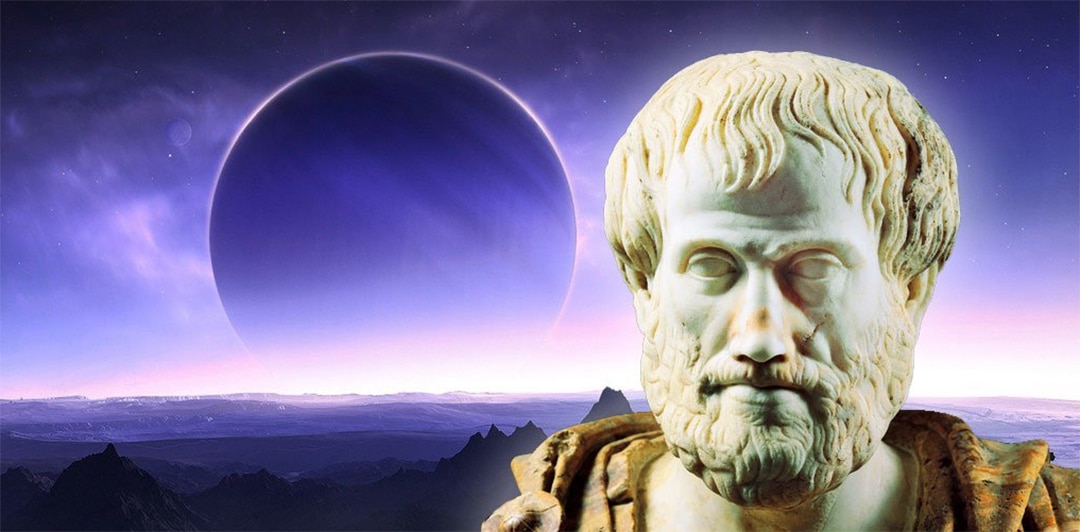
Goods, Desire, and Community (Revolutionary Aristotelianism Part 1)
by W.D. James | Apr 3, 2024
He say I know you, you know me
One thing I can tell you is you got to be free
Come together, right now, over mei
– The Beatles
The Organic Radicalii school of thought hinges on the possibility of an organic social order which, in turn, provides the basis and motivation for radical critique and revolutionary change. We might like to think that an emergent natural order will just happen. In a sense, it does; in the same sense that a plant just grows or amoebas just divide. However, when the natural process involves humans, it also involves choices and that means that what just happens might not happen if people don’t choose it—unlike other species, humans can choose to act against nature and against their species nature.
Even in the case of non-human nature, we still might ask ‘how does it happen.’ How does the plant grow? We might even ask why? In the case of human projects this is probably essential. Hence, we may ask: how does organic social order emerge and for what purposes? This calls for a theoretical response. Amongst the classical thinkers, Aristotle stands out as the thinker who most focused on natural processes of growth and development and applied that framework to the human world as well. In the contemporary world, the most important interpreter of Aristotle is likely the Scottish-American philosopher Alasdair MacIntyre (1929- ). He has termed the application of his reformulation of the classic theory ‘revolutionary Aristotelianism’. I will adopt that characterization as the title of this series of essays as well.
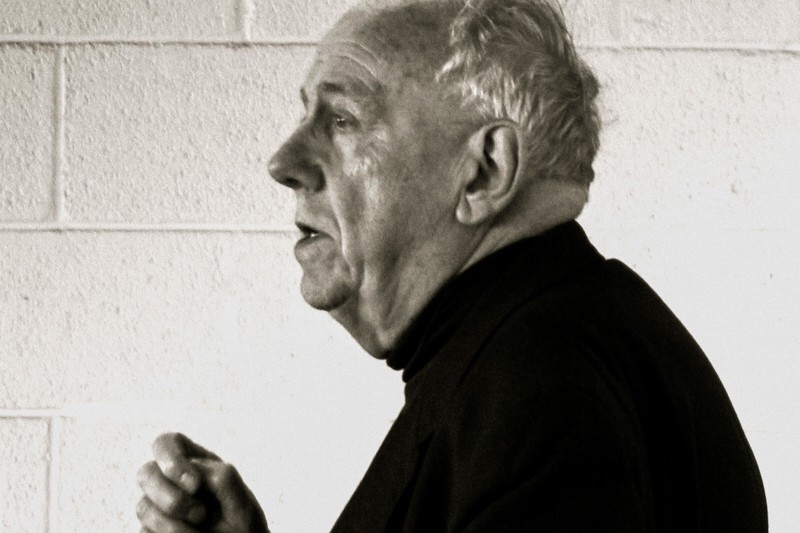
Why ‘revolutionary’? Isn’t Aristotle typically considered a conservative thinker? Not so much on MacIntyre’s reading. He, correctly in my estimation, also reads Marx as an essentially Aristotelian thinker. Bringing forward certain critical insights of Marx is one way in which this interpretation of Aristotle is radical. In another, MacIntyre loathes the modern world. More specifically, he sees the dominant features of the modern world as being the state and the market and, on his view, both of these destroy all that is small and local and good. More importantly, in doing so, they also destroy the sociological basis for engaging in practical reasoning together which is essential for the pursuit of common goods and the living of good lives. Hence, they are also abominations. In his careful, scholarly, detailed way, MacIntyre intends to undermine the entire modern project.iii This is the other sense in which it is radical.
What both thinkers offer us is an account of how spontaneous order emerges. It is not the only account. Perhaps it is not even the best account. However, it is a serious account to which we should pay attention. I don’t think anyone would accuse Aristotle of being an anarchist. The same could be said of MacIntyre, but that is perhaps less settled: if you reject the modern state, aren’t you at least in the neighborhood of some sort of anarchism? I go to the trouble of making this point to suggest that anarchism is certainly one path toward Organic Radicalism, but probably not the only path.

More concretely, what an Aristotelian account of natural social order offers us is an understanding of the role of morality in creating the centripetal forces that can produce social cohesion. The moderns like to divorce morality from nature. They even call the attempt to keep them together the ‘naturalistic fallacy.’ They pithily admonish ‘you cannot derive an ought from an is.’ Well, with the premoderns, I would give the rejoinder ‘if you cannot derive an ought from an is, you probably just can’t get an ought, or any ought you put forth will probably appear rather arbitrary.’ If morality is not rooted in nature, in reality, where the heck is it supposed to come from? An Aristotelian account of order provides the promise of holding nature and morality together.
In this series of essays, we’ll begin with looking at some of the key features of Aristotle’s thought, then in later essays move into MacIntyre’s reformulation of them.
Of Goods, Desire, and Community
Aristotle has a very concrete conception of morality. It is what philosophers call a ‘virtue ethics theory.’ What most distinguishes it from other approaches is that he shows how moral commitments and standards emerge from within nature, from within the stuff we humans characteristically do. There are no ‘rules imposed from outside.’
In our examination of Aristotle, we will stay focused primarily on his politics. In the book of that name, the opening line introduces the subject thus: “Observation shows us, first, that every city [polis] is a species of association, and, secondly, that all associations come into being for the sake of some good—for all men do all their acts with a view to achieving something which is, in their view, a good.”iv The elements of this approach we will wish to mark out for comment are: the city, associations, desire, and goods.
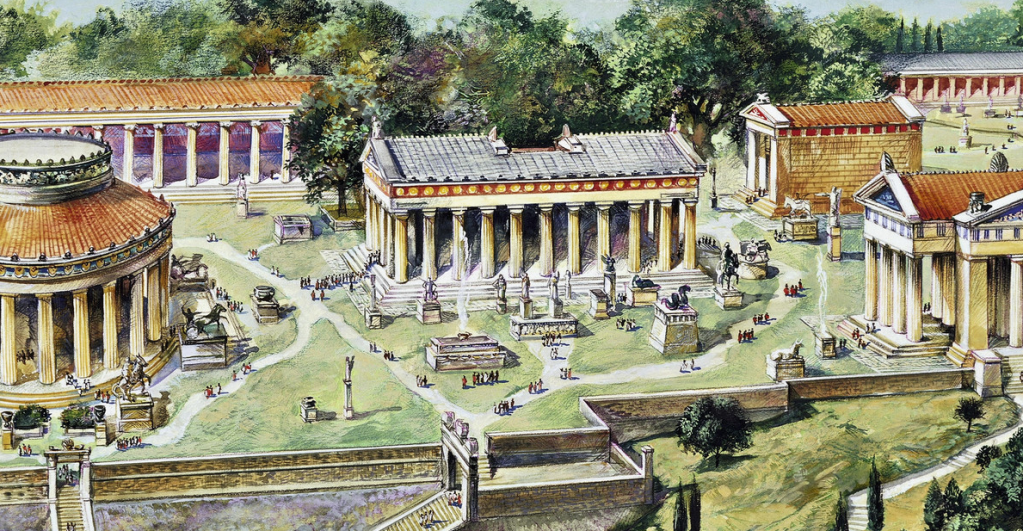
The City
A city or polis for Aristotle is the highest form of natural association. We will see why in a future essay. For now, observing that a polis (the Greek word from which our ‘politics’ derives) is a self-sufficient city-state will serve our purposes. On Aristotle’s reckoning, any form of association smaller than this lacked self-sufficiency which would, literally, mean it could not stand on its own. Anything larger than this, mainly an empire within his frame of reference, was too large and brought with it defects which made the achieving of good lives difficult if not impossible. I would argue that the modern state is in the same situation. Further, we can see how a city-state could emerge ‘naturally’ and organically. I would argue, and am pretty certain MacIntyre would concur, that the state cannot be conceived of as a natural form of association (and to cinch that I would draw on the modern theorist of the state, Thomas Hobbes, who is quite explicit that the modern state is artificial, not natural). Hence, it is completely illegitimate to translate Aristotle’s polis as ‘state’ or to assert that the state functionally fits into his discussion of politics, which is all too common amongst modern interpreters.
Associations
The city is one form of ‘association’. There are others. The ensemble of them would pretty much constitute what we term ‘society’. We will look at what the others are in the next essay. The term behind this translation is koinonia.v ‘Community’ would be a better translation in some regards. However, the essence of the word is that it denotes ‘sharing’. People in association are sharing in something; they are each contributing. There is a real unity. Just a group of individuals is not an association for Aristotle. What they share will depend on the sort of association we are looking at and what it aims at.
Aristotle famously states that humans are “political animals.” Hence, this sharing of life, joining into association, is part of what is natural for us. The isolated individual is not the standard of the human for him. An isolated human being, say on a deserted island or something, is not capable of fully developing their nature. The human being is always the human individual and their relationships. MacIntyre insists this is true of Marx’s understanding as well. To illustrate: you could not give an adequate account of who, or even what, WD was just by referring to those aspects of me which are contained by my skin. To give an adequate account you would have to include that (my physiology and my thought), but you would also have to include my relationships: I’m someone’s son, I’m a spouse and parent, I’m part of a university community, I’m part of online communities, I live in a particular neighborhood, etc… I’m not me with those abstracted.
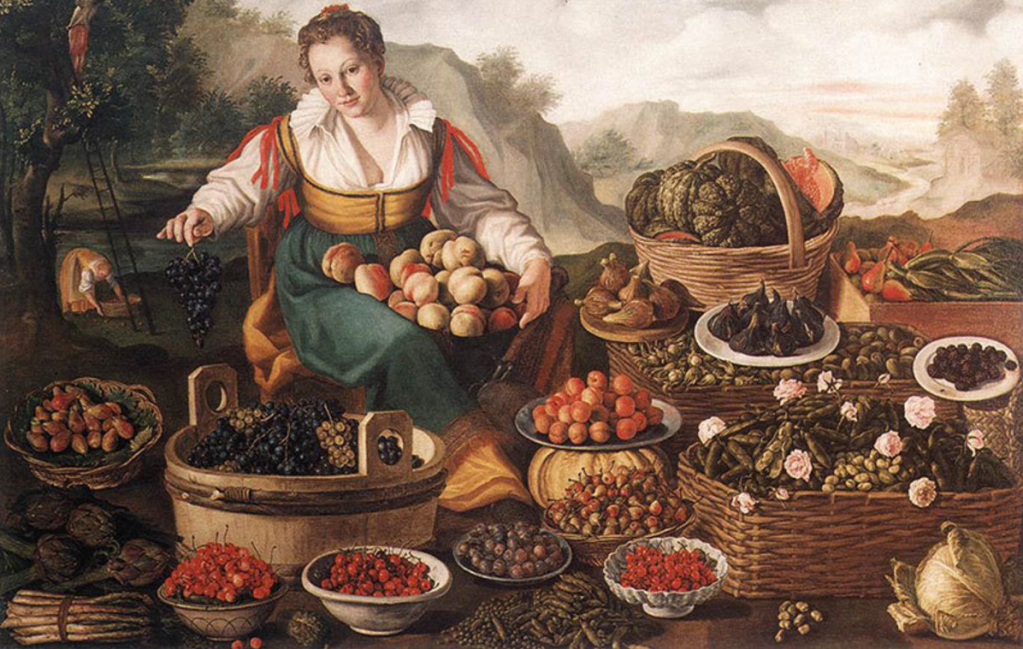
Desire
Why and how do these associations form and come about? Because we inherently want stuff that we have to work together to get. Nothing mystical or magical here. As a political animal I’ll want some stuff that I can’t provide all on my lonesome. So, I’ll enter into association with others. Presumably they wanted the same sorts of stuff and hence we have a genuinely shared interest in associating to achieve them.
Ultimately what is shared will come to include moral norms. It is fascinating, and you can’t get much more down to earth, that ultimately Aristotle roots morality in our desires. We want some stuff that we associate to acquire. That association, conditioned by the aim we established it for, will develop norms of how we interact with one another while associated. Morality. Further, certain ways of behaving, individually and collectively, will prove more effective than others in that pursuit. When those ways are internalized as dispositions of character (say, acting honestly): virtue.
Goods
What’s the stuff we desire? Goods. It’s tempting to say a good is anything we desire: a hamburger, camaraderie, heroin, justice, money, a new sweater, a mate, victory for our sports team. Aristotle specifies our desires are for what we think is good. We are always pursuing goods, or the good abstractly. But we might be either correct or mistaken in thinking any particular thing we desire is actually good.
Figuring out what is actually good will be a major part of Aristotle’s account of things. It will be even more central to MacIntyre and his critique of modernity. To truly be a good, the thing must actually be good for creatures like us. Some things are, some things are not. Sometimes in some circumstances a thing is, under different circumstances it may not be. Here Aristotle is operating in the same classical Greek ethical framework as Socrates and Plato: desiring and doing bad things is understood primarily as an error, not so much an evil. St. Augustine, who introduces a psychology to explain how we might actively desire evil as evil (and sadly, we seem to do so sometimes), was critical of this limitation. However, it also seems that often when we go wrong, it is in fact due to error. The person who becomes a heroin addict is probably not intending to seek evil. He probably is seeking relief from pain, physical or mental, which is a good: but makes a mistake about where turning to heroin will ultimately lead (ie, to bad, non-fulfilling outcomes).
What’s worth noting here, as we start to assemble the terms of Aristotle’s moral vocabulary, is everything is rooted in nature and our human nature. Authentic goods are good because they are good for us. Not because someone said they were or dreamed they were. This will include moral goods. So, Aristotle’s ethics will solidly be a form of naturalism. This is alluded to when, in the above quote, he begins with “observation shows us…”. Look around at what is and what people actually do; that will be our starting point. To adequately understand what we are and what we ought to desire and aspire to (what will fulfill us) is to understand what is good and right and excellent for us. Further, as good-seeking creatures, including those goods which are specifically moral (like justice, and courage, and respect), we are innately moral creatures.

‘End Neutrality’ implies ‘Nature Neutrality’
Modern political and economic liberalism rests on an assumption about society being ‘neutral’ as to the ends (purposes) individuals pursue. We might charitably attribute that to a desire to leave behind the sectarian violence of the 16th and 17th centuries which could be interpreted as showing that people differed as to the ends they preferred and in insisting that society and the state enforce those ends, generated conflict and war. We may also have learned some genuine practical wisdom in not being overly insistent on what ends are publicly championed: a degree of live and let live is no doubt essential to hold together any sort of community.
Of course, you can’t ultimately be completely neutral as to ends. If I were to set about to practice cannibalism as my purpose in life, society can’t just say ‘well, you decide what is good for you’. Hence, the issue of ‘rights’ becomes central to liberalism: choose your own ends, up to the point those ends might start to impose on the ends adopted by others. That boundary is the boundary protected by ‘rights’ and liberalism is the establishment of neutral procedures to police the boundaries of individual rights.
We do in fact value our freedom and a regime of rights protects our freedom in a way. We do in fact not want people to come along and cross those boundaries by punching us in the face or stealing our car. But does the overall framework hold up?
Can we coherently say it is good to be neutral about ends? Certainly, a political liberal would insist on their individual right to drink as much alcohol as they pleased (as long as they did not infringe on the rights of others, by driving drunk or something). An economic liberal would certainly insist on their right to manufacture and sell whatever they chose, say some status symbol clothing item, addictive social media app that destroys the lives of young people, or pornographic films (again, as long as they didn’t ‘hurt anyone else’; that the consumer chose to consume those products absolves the manufacturer of responsibility for any harm that eventually resulted).
Well, what kind of human is it that it is GOOD for them to drink unlimited amounts of alcohol and devote unlimited resources to consuming these sorts of items? The somewhat unspoken corollary to liberal end-neutrality is nature-neutrality: you can’t specify what a human IS and still hold all these things to be equally good. Hence, in the US, our Supreme Court is driven to the logical conclusion that we have inherent rights to individually define reality, existence, and meaning.vi If it were the nature of those things to vary infinitely by individual whim, in what sense are they still real, existent, and meaningful? However, as Aristotle points out, what is good is not whatever we decide is good. I can affirm all day long that heroin addiction is good for me, but it never really becomes so.
Now, to the point I feel Aristotle would immediately pose to us if he had the opportunity: nature, not you, gets the final say about what is good. You can affirm until you are blue in the face that it is good for you to drink as much as you darn well please, but human nature, reality, will show you otherwise. You can affirm your right to cut down all the trees on your property as much as you like, but nature will eventually tell you you are wrong when too many have been cut down. Your interpretations of what you are might vary infinitely, but not all of them will equally lead to a satisfactory and happy life. Human nature is not a neutral, completely malleable thing. It might be to an extent, but not infinitely. You should figure out what a human is and then try to make choices that lead to fulfilling your nature (by choosing purposes, ends, that actually make you happy and fulfilled).
Further, Aristotle would point out that society is not just the sum of all the individuals and their decisions. We are sharing in a venture when we go through life together. If we’re to do anything substantive together we will necessarily choose some ends over others.
And should we start to think ‘Aristotle, you’re starting to sound a bit authoritarian, are you the one who’s going to tell us what in fact constitutes human nature and what is good for us?’—Aristotle would immediately reply: no. Figuring that out is one of the things you share in when you join together into communities. Reason together, try things out, learn from experience. But if you want to actually achieve good things together, you can’t shirk the question of what is actually good. It is good to educate your children, or it isn’t. It’s good to pollute the planet to the point of uninhabitability or it isn’t. Certainly, you can learn from the experience of other human communities as well. But you’re going to need to figure it out. Nature will help teach you. When you produce misery, admit that is bad—it’s not neutral. To put a fine point on it: you habitually seek the good for yourself; it is incoherent to then say you are going to be neutral about what is good in your shared, social, lives. No one ever lived their life being neutral about what was genuinely good for them. Further, no community, in practice, can do so either.
In the next essay, we’ll get a sense of how Aristotle sees natural order emerging in several forms of association and how he thinks each of those forms of association is ‘programmed’ by nature to pursue certain sorts of good and to contribute to the overall flourishing of human animals.

Subscribe to Winter Oak
i Watch a John Lennon performance here: BEATLES– Come Together – rare live. – YouTube
ii Q&A – organic radicals (wordpress.com)
iii Hence, he is also an exemplary ‘egalitarian anti-modernist’: Was Jerusalem Builded Here? An Exploration of Egalitarian Anti-Modernism (Part 1) | winter oak
iv Aristotle, Politics, translated by Ernest Barker, Oxford University Press, 1998, p. 7.
v For a nicely detailed summary, see: Koinonia (wenstrom.org)
vi Justice Kennedy, writing for the majority, in Planned Parenthood vs. Casey.


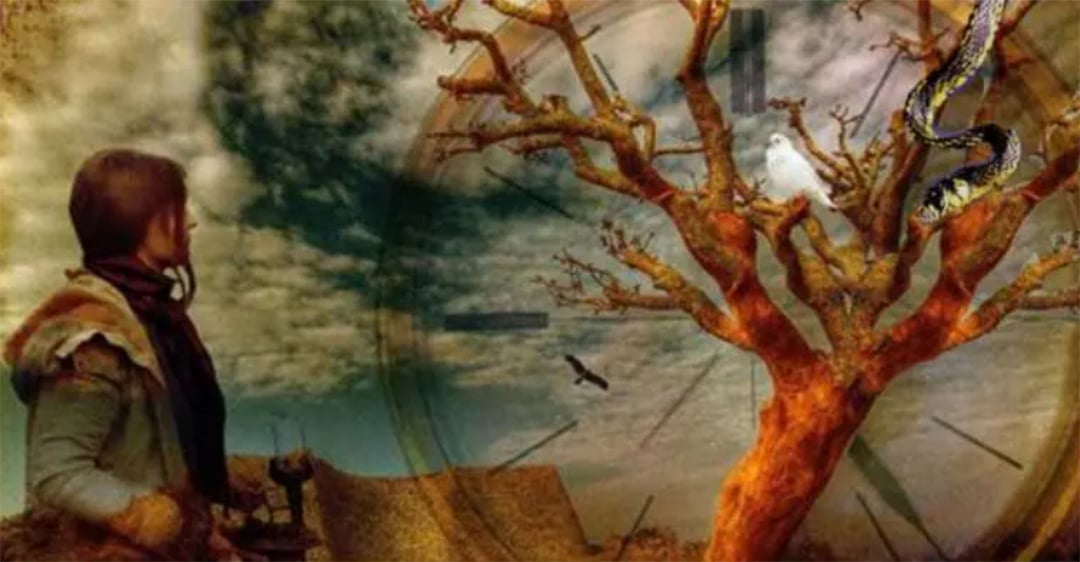

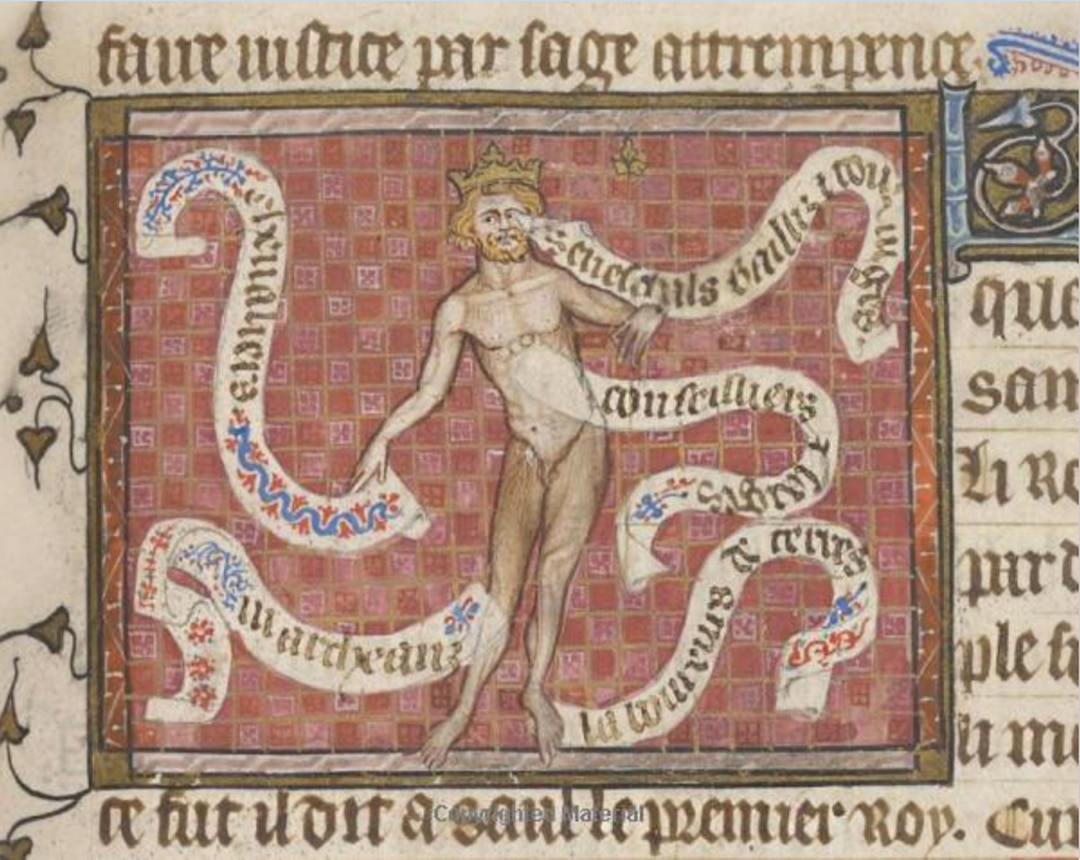
0 Comments